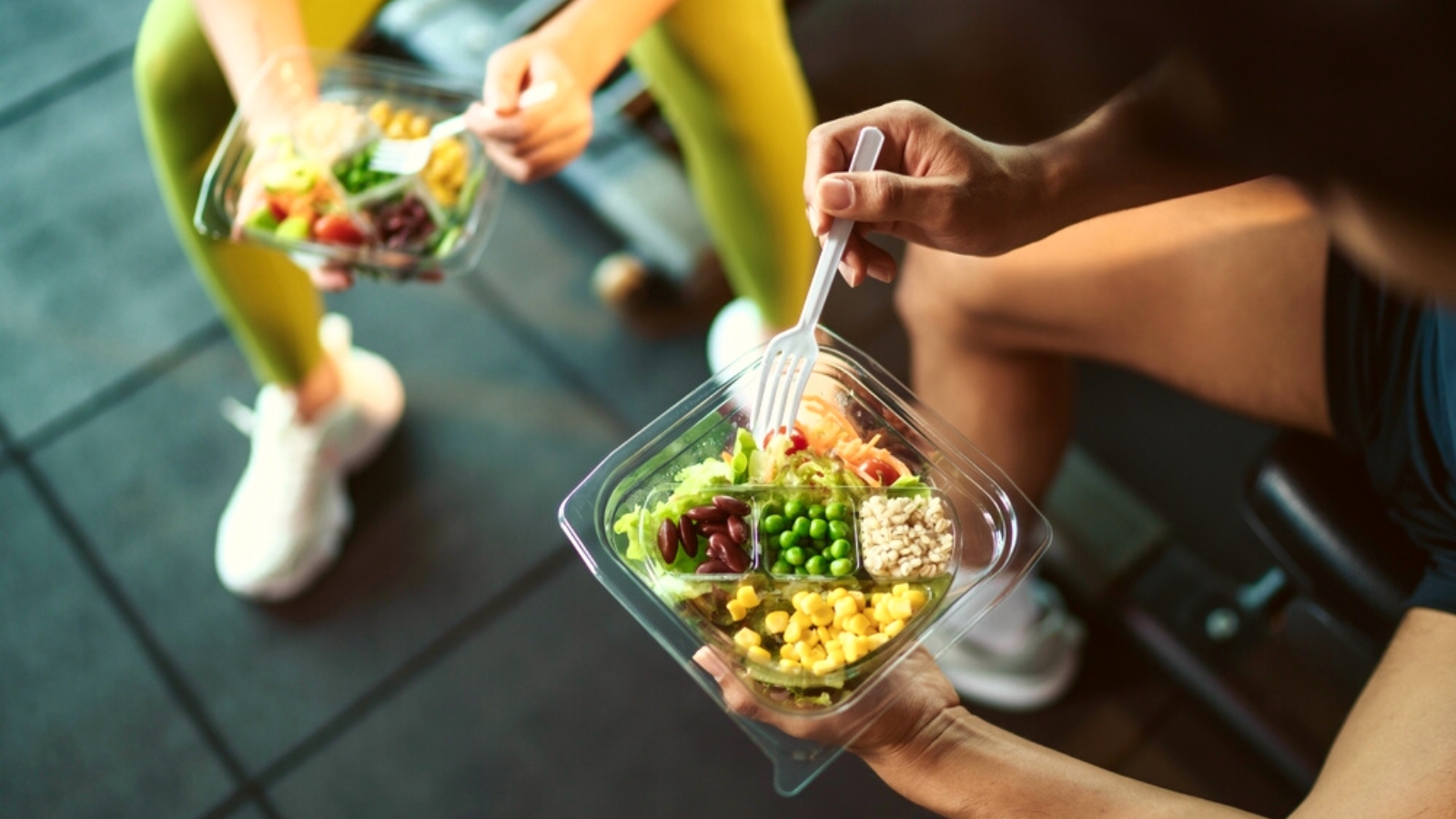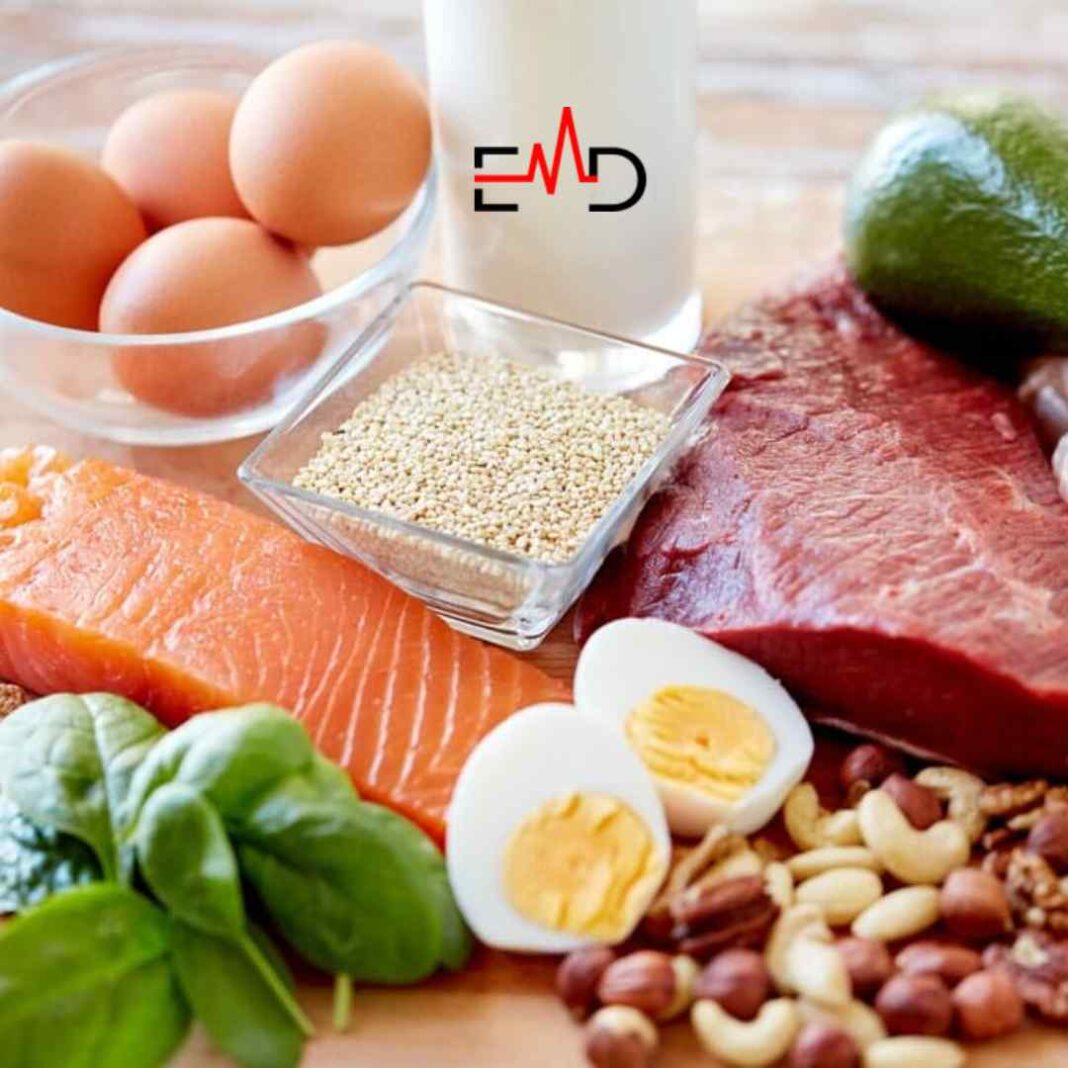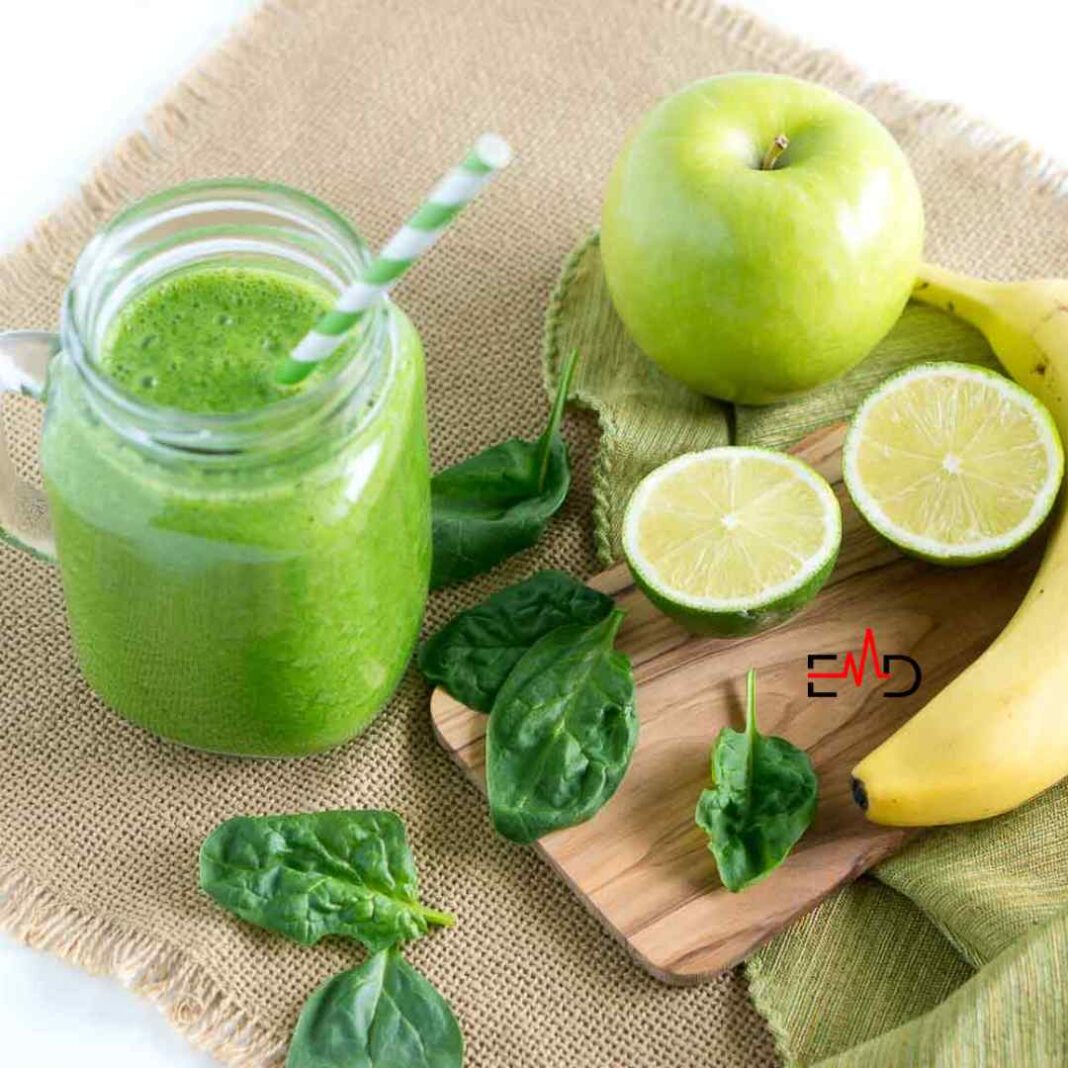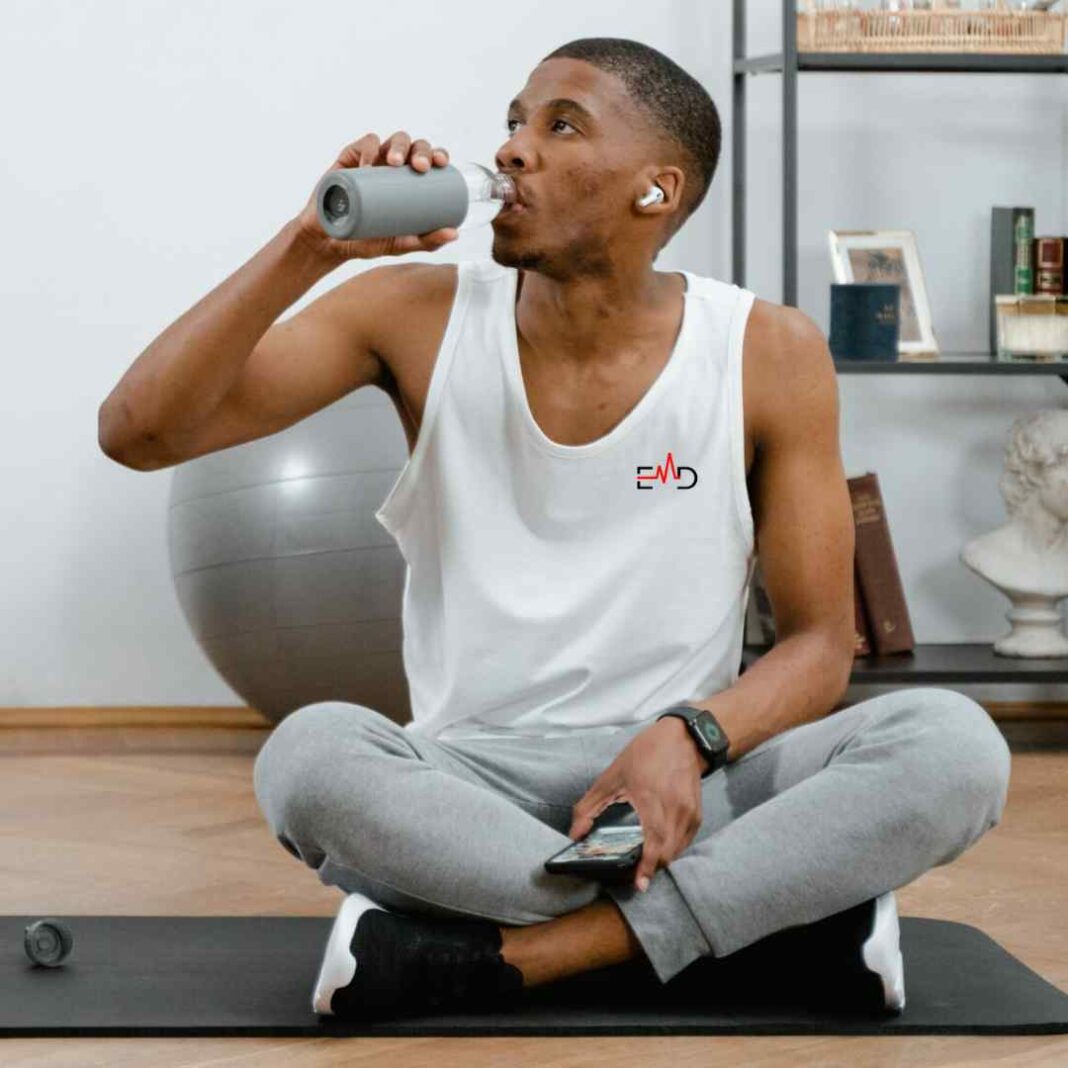Exercise Daily – Sports nutrition is a critical component of an athlete’s training regimen, but it’s often shrouded in myths and misconceptions. As a sports nutritionist certified by the American College of Sports Medicine, I understand the importance of myth-busting to optimize performance and wellness. This guide will debunk common sports nutrition myths, providing evidence-based information for athletes and health professionals.
One prevalent myth is that sports drinks contain the only essential fuel for athletes. While they can replenish electrolytes during intense exercise, they’re not the sole solution. Nutrient-rich foods like broccoli provide essential vitamins and minerals necessary for peak performance.
Athletes are bombarded with media messages touting the next miracle supplement or fad diet promising rapid weight loss or muscle gain. However, the truth is that consistent, balanced nutrition is key. Leucine, found in protein-rich foods, helps stimulate muscle protein synthesis, aiding recovery and muscle growth.
Sports Nutrition
What is Sports Nutrition?
Sports nutrition encompasses studying and applying nutrition principles tailored specifically to athletes and active individuals. It involves understanding the unique nutritional needs of athletes, including the optimal intake of macronutrients (carbohydrates, proteins, and fats), micronutrients (vitamins and minerals), and hydration strategies.
The Importance of Nutrition for Athletes
Proper nutrition is vital to an athlete’s performance, recovery, and overall well-being. It provides the necessary fuel for physical activity, aids muscle repair and growth, supports immune function, and enhances mental focus. By fueling your body with the right nutrients, you can optimize your athletic potential and reduce the risk of injuries and illnesses.

Debunking Common Sports Nutrition Myths
Let’s now debunk some of the most prevalent sports nutrition myths that continue to mislead athletes and active individuals:
Myth #1: Sports Drinks are Always Necessary for Hydration
One of the biggest sports nutrition misconceptions is that you need sports drinks to stay hydrated during exercise. While sports drinks can be beneficial for intense and prolonged activities lasting over an hour, they are unnecessary for shorter workouts. For most individuals engaging in regular exercise, water is sufficient to maintain hydration.
Myth #2: Carbohydrates Should Be Avoided for Weight Loss
Another common myth is that carbohydrates should be avoided for weight loss. Contrary to this belief, carbohydrates are an essential energy source for athletes. Restricting carb intake can lead to decreased energy levels, impaired performance, and hindered recovery. The key is to choose complex carbohydrates such as whole grains, fruits, and vegetables and consume them in appropriate portions.
Myth #3: Creatine Supplements are Harmful to Health
Creatine is a naturally occurring compound found in muscle cells, and supplementing with creatine has been shown to enhance high-intensity, short-duration activities. Despite misconceptions, creatine supplements are generally safe according to recommended guidelines. They can improve performance and support muscle strength and power, particularly in activities like weightlifting and sprinting.

Myth #4: Vegan Athletes Can’t Meet Their Nutritional Needs
Contrary to popular belief, vegan athletes can meet their nutritional needs with careful planning. By incorporating a variety of plant-based protein sources such as legumes, tofu, tempeh, and quinoa, along with a balanced intake of fruits, vegetables, whole grains, and healthy fats, vegan athletes can obtain all the necessary nutrients, including protein, iron, calcium, and vitamin B12.
Myth #5: Protein Shakes are Essential for Muscle Growth
Protein shakes have gained popularity among athletes as a convenient way to meet their protein requirements. However, they are not essential for muscle growth. Whole food sources such as lean meats, poultry, fish, eggs, dairy products, and plant-based proteins can adequately provide the amino acids needed for muscle repair and growth. While protein shakes can be a convenient option in certain situations, they should not replace a well-balanced diet.
Myth #6: Gluten-Free Diets Improve Athletic Performance
Gluten-free diets have become trendy, with claims of improved athletic performance. However, unless you have a diagnosed gluten intolerance or celiac disease, eliminating gluten from your diet is unnecessary and may even be detrimental. Whole grains containing gluten, such as wheat, provide essential nutrients and fiber contributing to overall health and performance.

Busting More Sports Nutrition Myths
Let’s continue to bust more sports nutrition myths that can impact your dietary choices and athletic performance:
Myth #7: Spot Reduction of Fat is Possible
Many believe that specific exercises targeting certain body parts can reduce fat in those areas. However, spot reduction of fat is a myth. Fat loss occurs throughout the body due to overall energy expenditure and a calorie deficit. Combining cardiovascular exercise, strength training, and a balanced diet is the most effective approach to reducing body fat.
Myth #8: Caffeine Enhances Fat Loss and Performance
Caffeine is often touted as a fat-burning and performance-enhancing supplement. While caffeine can temporarily boost metabolism and enhance alertness, its effects vary among individuals. Regular consumption of excessive caffeine can lead to tolerance and potential side effects. It’s important to moderate caffeine intake and consider individual sensitivity when incorporating it into your nutrition plan.
Myth #9: High-Protein Diets Lead to Kidney Damage
There is a common misconception that high-protein diets can cause kidney damage. However, there is no evidence for healthy individuals to support this claim. High-protein diets can be safe and effective for weight loss, muscle gain, and satiety. Staying hydrated and distributing protein intake evenly throughout the day is crucial to optimize muscle protein synthesis.
Myth #10: Ketogenic Diets are Optimal for Athletic Performance
Ketogenic diets, which are very low in carbohydrates and high in fats, have gained popularity in recent years. While they may have benefits for certain medical conditions, they are not optimal for most athletes. Carbohydrates are the primary fuel source for high-intensity exercise, and low-carb diets can lead to decreased performance, fatigue, and impaired recovery.
Myth #11: More Protein Means More Muscle
While protein is essential for muscle growth and repair, consuming excessive amounts does not necessarily equate to more muscle. The body is limited to how much protein it can utilize for muscle synthesis. Consuming protein within the recommended range of 1.2-2.0 grams per kilogram of body weight, spread evenly throughout the day, is sufficient for most athletes to support muscle development.
Myth #12: You Shouldn’t Eat Before Exercise
Another prevalent myth is that you shouldn’t eat before exercise, especially if you are trying to lose weight. However, fueling your body before a workout is essential for optimal performance. Consuming a balanced meal or snack containing carbohydrates and moderate protein before exercise provides the necessary energy to sustain intensity and endurance.
Myth #13: Antioxidant Supplements Improve Exercise Performance
Antioxidant supplements, such as vitamins C and E, have been marketed as performance enhancers. However, scientific evidence does not support their effectiveness in improving exercise performance. Antioxidants are best obtained through a well-rounded diet rich in fruits, vegetables, and whole foods, as they provide a wide range of beneficial compounds beyond just antioxidants.
Myth #14: Electrolyte Drinks are the Only Source of Electrolytes
Electrolyte drinks, such as sports drinks, are commonly associated with replenishing electrolytes lost through sweat during exercise. While they can be beneficial in specific situations, electrolytes can also be obtained from various whole food sources. Foods like bananas, oranges, yogurt, and coconut water are natural sources of electrolytes that can support hydration and electrolyte balance.
Myth #15: Dehydration Only Occurs with Visible Signs of Thirst
Many athletes believe they only need to hydrate when they experience visible signs of thirst. However, relying solely on thirst as an indicator of hydration status can be misleading. Thirst is a late-stage indicator, and you may already be mildly dehydrated by the time you feel thirsty. It’s essential to hydrate consistently before, during, and after exercise to maintain optimal performance and prevent dehydration.

Seeking Expert Advice: The Role of Registered Dietitians
With so many nutrition myths circulating, seeking advice from qualified professionals, such as registered dietitians specializing in sports nutrition, is crucial. Sports dietitians can provide personalized guidance based on your specific needs and goals, helping you optimize your performance and overall nutrition. Here are some common questions athletes often ask sports dietitians:
How many calories do I need to consume to maintain my activity level?
What’s the best way to refuel my glycogen stores after a workout?
How can I build muscle while maintaining a vegan diet?
Are there specific nutrients or supplements I should consider for my sport?
How can I manage my weight effectively without compromising performance?
What are some pre- and post-workout meal/snack ideas?
How can I improve my recovery time between training sessions?
Are there any specific dietary strategies to prevent injuries?
How can I optimize my hydration during training and competition?
What should I eat during long endurance events?
How can I adapt my nutrition plan for different training phases (e.g., off-season, competition season)?
Are there any specific strategies to improve mental focus and concentration through nutrition?
Consulting a registered dietitian with expertise in sports nutrition can provide evidence-based answers to these questions and help you develop a personalized nutrition plan that aligns with your athletic goals.
Conclusion
Sports nutrition is essential for athletes and active individuals to optimize their performance and overall health. You can make informed dietary choices based on scientific evidence by debunking common sports nutrition myths. Remember to focus on a well-balanced diet that includes appropriate amounts of carbohydrates, proteins, and fats, as well as a variety of fruits, vegetables, whole grains, and healthy sources of hydration. When in doubt, consult a registered dietitian specializing in sports nutrition to receive personalized guidance tailored to your specific needs and goals. You can fuel your body for success and reach your full athletic potential with proper nutrition.
FAQs – Debunking Sports Nutrition Myths: Athlete’s Guide to True Nutrition
Q: How many calories must I consume to maintain my activity level?
A: The number of calories you need depends on your body size, activity level, and goals. Consulting a registered dietitian specializing in sports nutrition can help determine your specific calorie needs based on your circumstances.
Q: What’s the best way to refuel my glycogen stores after a workout?
A: Consuming a combination of carbohydrates and protein within 30 minutes to an hour after exercise can help replenish glycogen stores. Good post-workout options include a fruit and yogurt smoothie, a whole grain wrap with lean protein, or a balanced meal containing carbohydrates and lean protein sources.
Q: How can I build muscle while maintaining a vegan diet?
A: Vegan athletes can build muscle by ensuring an adequate intake of plant-based protein sources such as legumes, tofu, tempeh, quinoa, and plant-based protein powders. Combining these protein sources with various fruits, vegetables, whole grains, and healthy fats is important to obtain a complete range of nutrients.
Q: Are there specific nutrients or supplements I should consider for my sport?
A: The nutrient requirements can vary depending on the sport and individual needs. While it’s best to obtain nutrients from whole foods, some athletes may benefit from specific supplements such as vitamin D, omega-3 fatty acids, or iron. Consulting a sports dietitian can help identify any specific nutrient needs for your sport.
Q: How can I manage my weight effectively without compromising performance?
A: Weight management should be approached cautiously to avoid compromising performance. Focusing on a balanced diet with appropriate calorie intake is important for your energy needs. Consulting a sports dietitian can help develop a personalized plan that supports weight management while maintaining optimal performance.
Q: What are some pre- and post-workout meal/snack ideas?
A: Pre-workout meal/snack ideas include a banana with nut butter, Greek yogurt with berries, or whole grain toast with avocado. Post-workout options include a protein shake with fruits, a turkey and vegetable wrap, or a chicken stir-fry with brown rice and vegetables.




